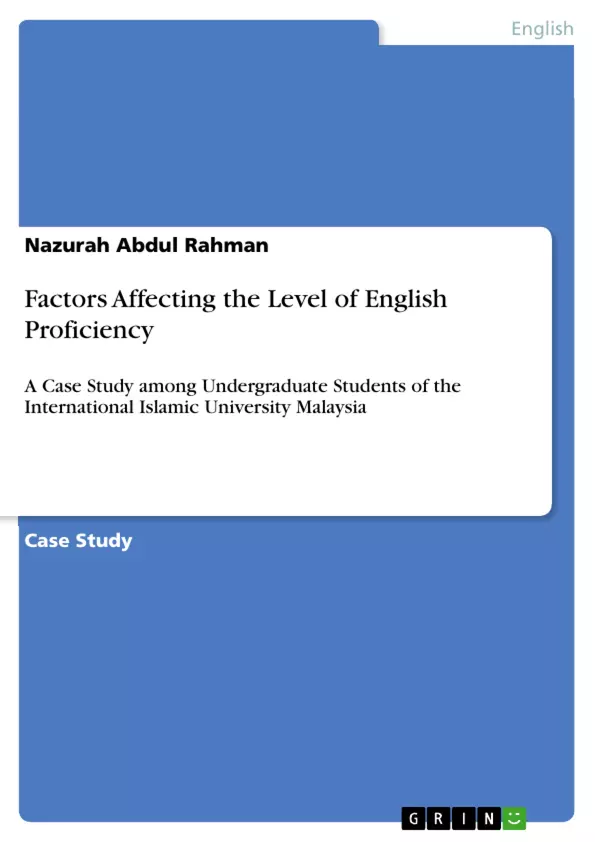The purpose of this study is to investigate the factors affecting the level of English proficiency among International Islamic University Malaysia (IIUM) undergraduate students. A set of questionnaires were distributed online and data from a sample of 75 students were collected through Google Forms. Two demographic factors, namely gender and years of learning English, were used as the variables.
The finding of the study suggests that the factors affecting the level of English proficiency among IIUM undergraduate students were not affected by gender but were affected by the duration of learning English. The factors that were contributing to the level of English proficiency among IIUM undergraduate students were language anxiety, students’ attitude and also peers, parental and teacher influences. Besides, the study also revealed that there is no significant relationship between cultural stereotypes and students’ performance in second language acquisition.
The level of English proficiency among Malaysian students are often questioned. Despite learning English for almost 10 years in school, the majority of Malaysian students still encounter difficulties in using the language effectively especially in tertiary education. Many local graduates are still unemployed due to their lack of fluency in English.
TABLE OF CONTENT
ABSTRACT
1.0 INTRODUCTION
2.0 STATEMENT OF PROBLEM
3.0 RESEARCH QUESTIONS
4.0 LITERATURE REVIEW
5.0 METHODOLOGY
6.0 FINDINGS
7.0 DISCUSSION
8.0 CONCLUSION AND RECOMMENDATION
9.0 REFERENCES
APPENDIX
- Citar trabajo
- Nazurah Abdul Rahman (Autor), 2016, Factors Affecting the Level of English Proficiency, Múnich, GRIN Verlag, https://www.grin.com/document/383545



